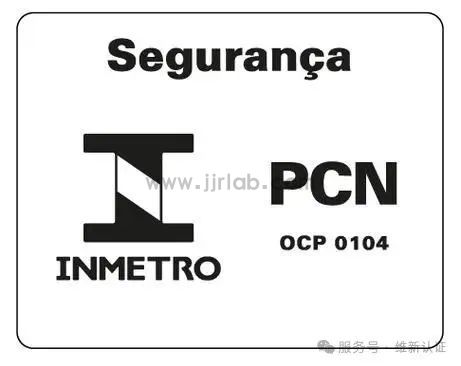
What is INMETRO Certification?
INMETROstands for Instituto Nacional de Metrologia, Qualidade e Tecnologia, which translates to the National Institute of Metrology, Quality, and Technologyof Brazil. It is the national accREDitation body in Brazil, responsible for setting standards, accrediting laboratories, certification bodies, and inspection bodies.
According to the latest Ordinance No. 2/2017, INMETRO designated Cgcre(General Coordination for Accreditation) as the official accreditation body for product certification bodies (OCPs). Although "Cgcre certification" is the technically correct term, the certification is commonly referred to in the industry as INMETRO certification, due to INMETRO's greater name recognition.
01. What is INMETRO Certification?
INMETRO certification is either a mandatoryor voluntarycertification issued by Brazil’s National Institute of Metrology, Standardization, and Industrial Quality. Its purpose is to ensure that products comply with Brazil’s safety, health, environmental, and quality standards.
There are two categories of INMETRO labels:
1. Mandatory Certification
2. Voluntary Certification
Both are issued by a designated Certification Body (CB). Products that require mandatory certification must bear the INMETRO mark and the mark of an INMETRO-accredited third-party bodyon both the product and packaging before entering the Brazilian market.
Products that fail to obtain required certification cannot be sold in Braziland may be subject to penalties or fines.
02. Scope of INMETRO Certification
INMETRO certification covers a wide range of consumer and industrial products, including electrical and electronic equipment, medical devices, household appliances, and automotive components.
Certification is conducted in accordance with regULations and ordinances issued by INMETRO. As of January 22, 2019, there are:
156 product categoriesunder mandatorycertification
40 product categoriesunder voluntarycertification
Examples of Mandatory Products:
1. Household Appliances: refrigerators, air conditioners, washing machines (tested for safety, energy efficiency, and EMC)
2. Consumer Electronics: mobile phones, televisions (tested for electrical safety, EMC, and performance)
3. Automotive Parts: brake pads, tires (tested for safety, durability, and environmental compliance)
4. Power Tools: tested for energy efficiency, electrical safety, and mechanical performance
5. Other Products: plugs and sockets, safety glass, medical devices, etc.
03. INMETRO Certification Process
Step 1: Confirm Certification Type
Check the INMETRO website or consult a certification body to determine if your product falls under mandatory certification.
Step 2: Application – Prepare Technical Documents
This is the most crucial step in the INMETRO process. You will need to prepare comprehensive and accurate documentation, including:
1. Product manuals
2. Design drawings
3. Test reports (e.g., safety, energy efficiency, EMC)
4. ISO 9001 quality management system documentation (if applicable)
Step 3: Sample Testing
Submit product samples to an INMETRO-accredited laboratoryfor testing. Required tests may include electrical safety, mechanical performance, energy efficiency, etc. In some cases, samples may be randomly selected from the Brazilian market. If a sample fails, corrective actions and retesting are required.
Step 4: Factory Audit
Some products require on-site factory inspections to ensure compliance with manufacturing standards. These audits typically last five business days.
Step 5: Certification and Labeling
Once all steps are successfully completed, submit the documentation to INMETRO for final approval. The official review period is 15 business days.
> Note:
1. The certification process typically takes 3–6 months, depending on product complexity.
2. Some certification bodies may allow simultaneous testing and certification to save time.
3. Certification must be based on the latest IEC standards.
Important Notes
1. Validity: INMETRO certificates are valid from 2 months to 5 years, depending on the product category.
2. Factory Inspection Frequency: The manufacturer is subject to semi-annual audits.
3. Certificate Holder: The certificate must be held by a local Brazilian entity.
04. INMETRO Certification Mark
Once certified, the product label must follow the template provided by the OCP (Product Certification Body).
The label must include:
a. INMETRO mark
b. OCP logo and code
c. Registration number of the local Brazilian certificate holder
An example label would look like the following:

Email:hello@jjrlab.com
Write your message here and send it to us
 How Do You Get a CE Mark
How Do You Get a CE Mark
 IEC 60529 IP Rating Ingress Protection Standard
IEC 60529 IP Rating Ingress Protection Standard
 IEC 60601-1 Medical Electrical Equipment Basic Saf
IEC 60601-1 Medical Electrical Equipment Basic Saf
 European Authorized Representative Medical Devices
European Authorized Representative Medical Devices
 EU Waste Electrical and Electronic Equipment Direc
EU Waste Electrical and Electronic Equipment Direc
 How to Get CE Approval
How to Get CE Approval
 Accelerated Ageing Test
Accelerated Ageing Test
 IP Ingress Protection Testing
IP Ingress Protection Testing
Leave us a message
24-hour online customer service at any time to respond, so that you worry!




